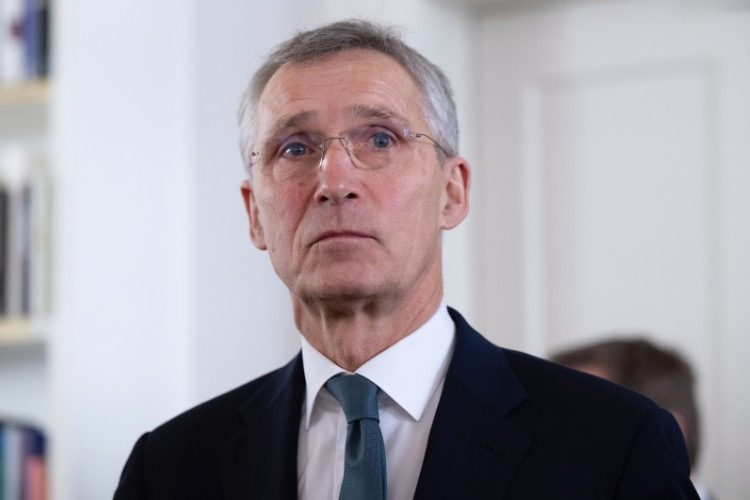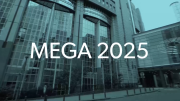
NATO Secretary-General Jens Stoltenberg said February 15 that a delay in passing new U.S. aid for Ukraine was already undermining Kyiv’s forces on the battlefield against Russia.
“We see the impact already of the fact that the U.S. has not been able to make a decision, but I expect the U.S. to be able to make a decision, that the Congress and the House of Representatives will agree to continue support to Ukraine,” Stoltenberg told journalists before a meeting of NATO defense ministers.
Ukrainian commanders and Western officials have said that Kyiv’s troops are being outmaneuvered by Russia along the front line and are having to use depleting supplies of artillery and air-defense munition sparingly.
“If we allow President Putin to win, it will not only be bad for the Ukrainians, a tragedy for Ukrainians, but also be dangerous for us. It will make the world even more dangerous and us more vulnerable,” Stoltenberg said.
The head of the Western alliance said he had seen “broad agreement” during a recent visit to Washington on the need to maintain U.S. support for Kyiv.
“I count on the U.S. Congress to be able to reflect that support in a decision to sustain the support for Ukraine,” he said.
The U.S. Senate on February 13 approved a $95 billion package for Ukraine, Israel, and Taiwan by a considerable margin, but House Speaker Mike Johnson has declined to put it to a vote in the lower chamber. U.S. President Joe Biden urged Johnson to put the bill on the floor as soon as possible, claiming that it has enough votes to be approved.
The speaker reiterated his resistance to the proposal on February 14, citing the unresolved issue of southern border security. There were previously efforts in the U.S. Congress to link border security to foreign aid, but they failed.
“The Republican-led House will not be jammed or forced into passing a foreign aid bill that was opposed by most Republican senators and does nothing to secure our own border,” Johnson told the press. GOP lawmakers demand that “before we take care of issues all around the world, we take care of our own first.”
Germany’s defense minister, Boris Pistorius, said he would lobby U.S. lawmakers on the issue at the Munich Security Conference, which began today.
“We have to emphasize our willingness to support Ukraine. This is an issue for all of us,” he said.
Questions over future U.S. aid for Ukraine come at a moment of increased worry over American leadership after Republican White House frontrunner Donald Trump incensed NATO by suggesting he would not protect allies that do not spend enough on defense.
NATO on February 14 published new figures showing that 18 of its 31 member countries are set to meet a target this year of spending two percent of gross domestic product.
French Defense Minister Sebastien Lecornu said on February 15 that France would join European powers such as Germany in reaching that goal this year.
Stoltenberg said it was a “good thing” that NATO’s European members were ramping up defense expenditure in the face of Russia’s aggression, but cautioned against trying to do so without the United States.
“That’s not an alternative to NATO. That is actually a way to strengthen NATO,” he said.
Stoltenberg maintained that the alliance’s Article 5 commitment to defend any ally if attacked remained the “heart” of NATO.
“And of course that applies for all allies,” he said.
Meanwhile, Russian Foreign Minister Sergey Lavrov said on February 16 that the EU is a direct participant in the Ukraine conflict and is planning to supply Kyiv with weapons capable of striking at the “heart” of Russia.
Moscow has obtained information suggesting that the EU’s foreign policy service believes Kyiv is incapable of defeating Russia using its present methods, Lavrov stated. Brussels has thus suggested sending even longer-range weapons to Ukrainian forces “so that they reach the heart of Russia, as the EU describes it, and thereby sow confusion and panic and undermine the trust of the people,” he added.
“Is this not direct participation in the war? Of course it is,” Lavrov said at an event marking the 10th anniversary of the Western-backed coup in Kyiv.
The diplomat contended that despite Kyiv’s backers claiming they are “only arming Ukraine,” everyone understands that “this is a lie” and that Western instructors are helping the Ukrainian command select targets for attacks. “We are 100 percent sure of this,” Lavrov posited.
“In war, the main thing is strategies, and strategies are not located in Kiev, but far away,” the foreign minister added.
Lavrov stated that the West has effectively declared war on Moscow by using Kyiv to “contain Russia” and impose a “strategic defeat” to prevent Russia from playing an increasingly pivotal role on the global stage.
By doing so, the West has turned Ukraine into “the poorest state in Europe, into a dying territory, without exaggeration,” the diplomat claimed. The Ukrainian government has become “a universally recognized international beggar,” he added.
However, Lavrov said he believed that Russia’s ties with the West will eventually be restored, although the timing is not up to Moscow. “This is their problem,” the minister stated, recalling Russian President Vladimir Putin’s recent remarks to American journalist Tucker Carlson that Moscow has already made “many concessions” and “gestures of goodwill” and has reached its limit in this respect.
Earlier this week, Lavrov also said that the West was not interested in providing a realistic diplomatic solution to the Ukraine conflict because the United States and its allies are bent on waging a hybrid war against any countries that prioritize their national interests.
In an interview with the Ukrainian daily Suspilne on February 16, a senior U.S. State Department official, Daniel Cisek, said that Ukraine should not expect to become a NATO member at the bloc’s key summit later this year.
Cisek claimed that the U.S.-led military bloc, which celebrates its 75th anniversary this April, is “getting stronger.”
He noted Finland’s recent accession to the alliance, as well as Sweden’s efforts in doing the same. The two Nordic countries ditched their decades-long policies of neutrality in 2022 after the start of the Ukraine conflict.
Cisek also recounted that the leaders of NATO countries verified last year that Ukraine’s future lies in the bloc. However, the official noted that while the alliance understands Kyiv’s desire to become a full-fledged member “as soon as possible,” the issue of accession will not be on the agenda in July 2024 when NATO leaders gather for a meeting in Washington.
“To be honest, this is not expected at the NATO summit this year … probably [it will be] after the war,” he said.
NATO first declared that Ukraine would join in 2008. After a Western-backed coup in Kyiv in 2014, Ukraine increased contacts with the alliance, enshrining membership in its constitution as a strategic goal. In autumn 2022, it officially applied to join NATO after four of its former regions overwhelmingly voted to become part of Russia in referendums that many in the West labeled as a sham.
Moscow has repeatedly opposed what it calls NATO’s encroaching expansion toward its borders since the collapse of the Soviet Union, with Putin quoting Ukraine’s push to join as one of the key reasons for Russia’s military operation.
Despite repeated pleas from Kyiv to accept it into the bloc, NATO officials have stopped short of setting an exact deadline. Stoltenberg said last year the issue was not on the table until the Russia-Ukraine conflict ends.



